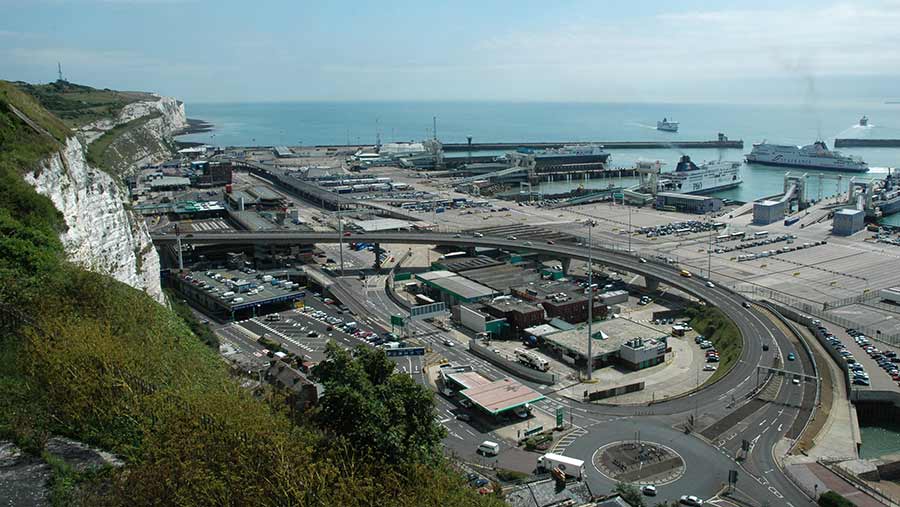UK border check deadline faces further delays
 © Shorty/Adobe Stock
© Shorty/Adobe Stock Post-Brexit border checks on EU food imports look likely to be delayed for a fourth time over fears extra red tape could threaten food supplies.
Checks on food and farming products were imposed at European ports immediately after Britain left the EU on 31 January 2020.
The extra red tape saw a slump in British agricultural product exports to mainland Europe.
However, while the EU barriers hit UK farming’s competitiveness, the government opted to delay checks this side of the English Channel because it feared widespread food shortages.
See also: Britain braced for food crisis as rising costs hammer farmers
Initially, checks that farm leaders hoped would level up competition were pushed back for six months to 1 July 2020, and EU goods were allowed into the UK under an open-door policy.
Because the threat of empty shelves continued throughout the Covid-19 pandemic, checks were pushed back twice in 2021. Currently, their introduction is scheduled for 1 July 2022 for meat, 1 September for dairy and 1 November for other foodstuffs.
Construction delays
However, as well as the risk to food supply, other factors are also behind the delays. Construction work, approval and funding of the border control posts (BCPs), needed to carry out checks, have been dogged by delays.
In March – with three months remaining until the latest deadline – a government spreadsheet charting BCP progress, obtained by Farmers Weekly, showed that work and approval of sites were running behind at most of the key import locations.
Although, Defra insisted that everything was on schedule at the time, speculation is now growing that checks will be put back by up to nine months.
This week, government officials refrained from confirming or denying whether the 1 July deadline would be met.
A Defra spokeswoman said: “We are keeping this issue under careful review, given ongoing supply chain disruption – including as a result of Russia’s illegal invasion of Ukraine – and wider cost-of-living pressures.”
Rather than acknowledge Brexit had caused difficulties, she added: “It is precisely because of Brexit that we’re able to set an import control regime which is best suited to our own needs.”
Prime minister Boris Johnson has also been quizzed about the issue during his recent trade trip to India and told the press: “I’m generally in favour of minimal friction at all junctures between the UK and the EU.”
Animal health risks
The prospect of delays has been met with concern by vets who have warned this will put the country at risk of importing infectious livestock diseases.
British Veterinary Association senior vice-president James Russell said: “If these checks are delayed for a fourth time, there is a real risk of serious implications for animal health and British agriculture.
“Official veterinarians working at the border are Great Britain’s first line of defence of biosecurity.”
Mr Russell warned: “Pushing these checks back even further will open the door to diseases, such as African swine fever.
“It would be incredibly ill-advised to delay these crucial checks again and weaken this vitally important protection for both animal and human health.”
